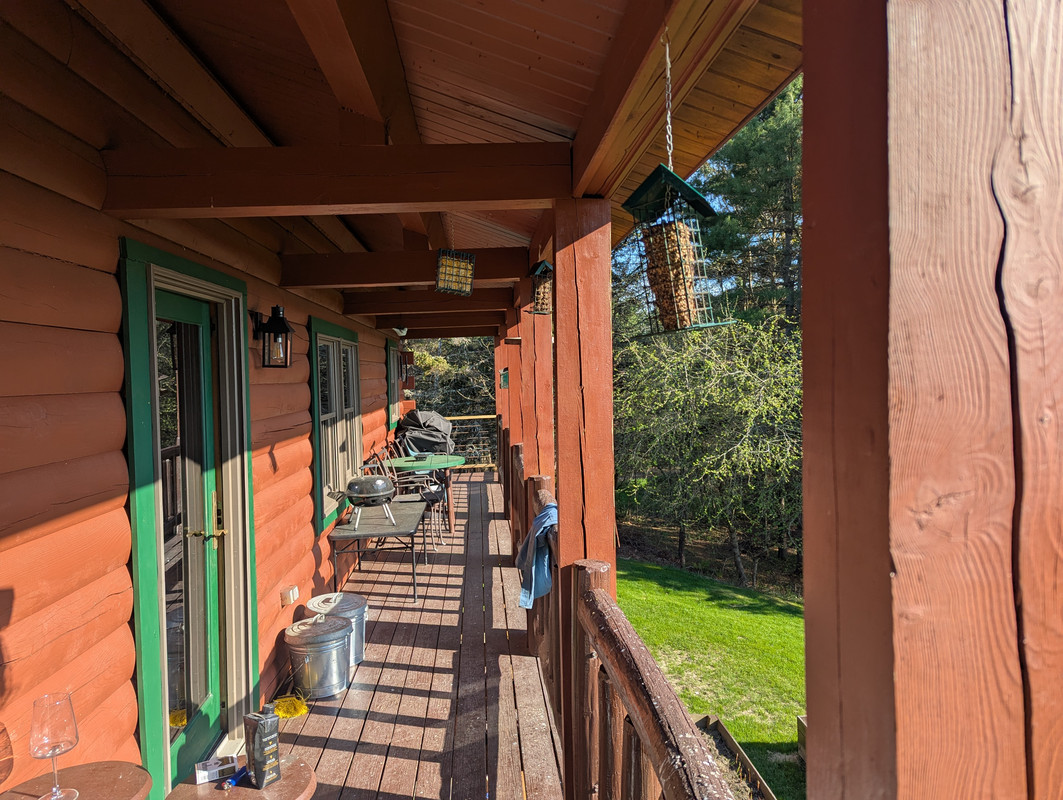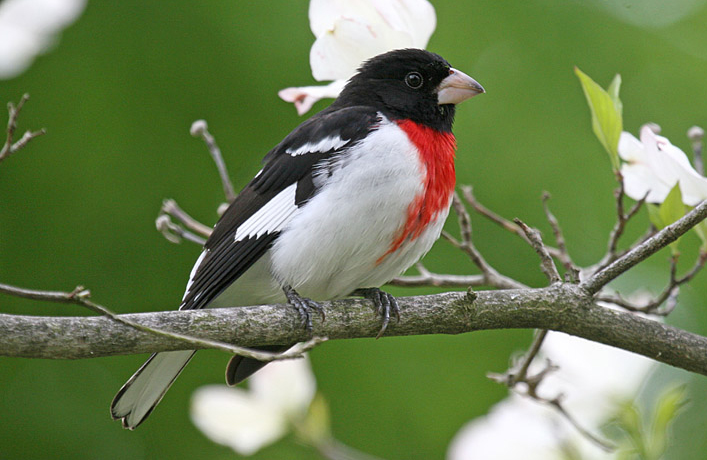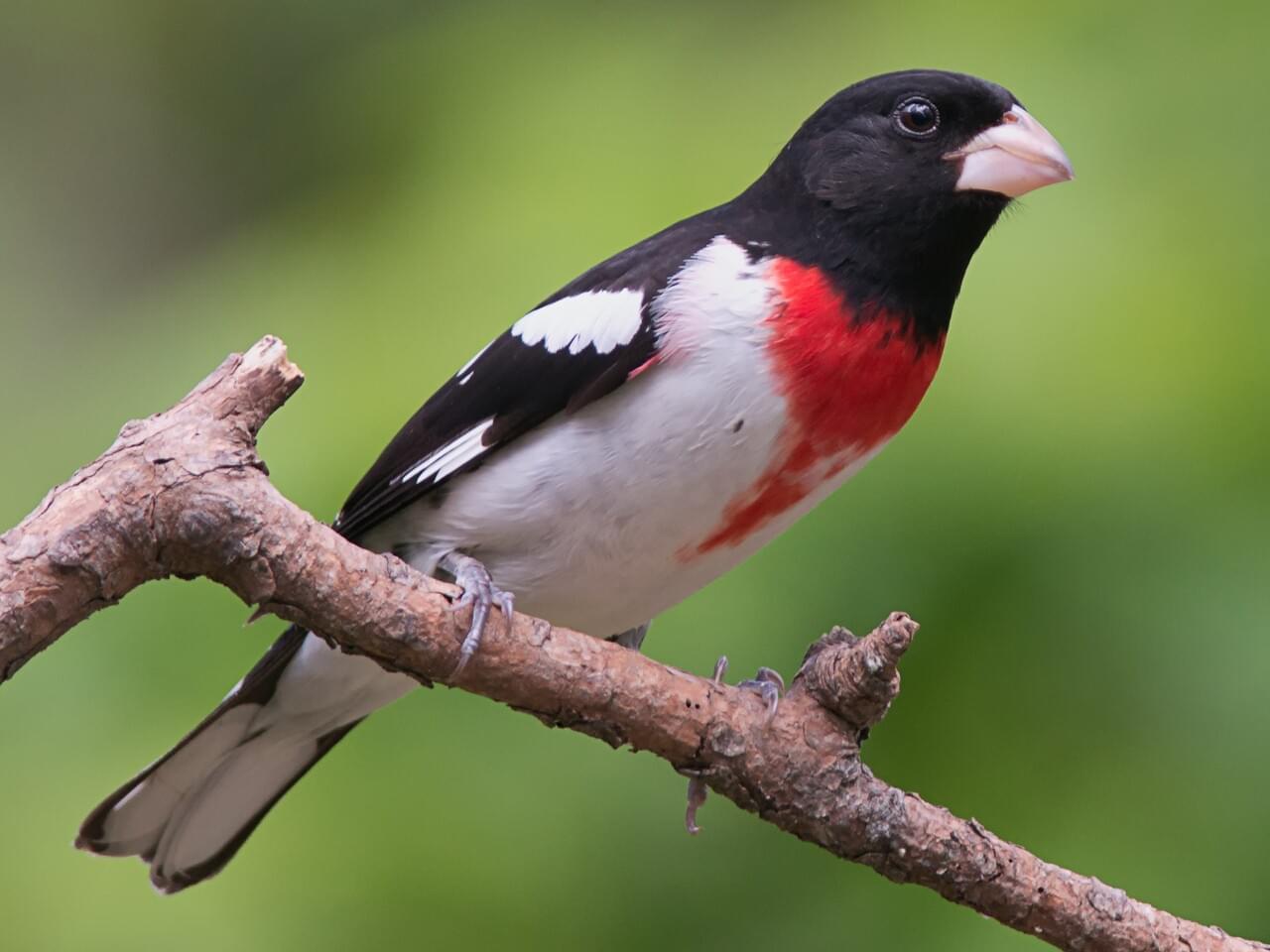Birders
Related: About this forumI found this poor thing on my deck to night. I think he hit my window pretty hard. Weirdly, I got a paper towel and
went to pick him/her up. It's still alive....wrapped in the paper towel ondesk as I type this.
What is it?
What should I do with it?

OAITW r.2.0
(31,899 posts)Bummer.
Silent Type
(12,412 posts)hlthe2b
(113,465 posts)SheltieLover
(79,210 posts)Recipe for bird disasters.
They put some stick on things on the window that helped.
Just heartbreaking...
![]()
Cirsium
(3,748 posts)The American Bird Conservancy has field tested a number of solutions. The best solution by far is leaving screens on the windows.
https://abcbirds.org/solutions/prevent-home-collisions/
OAITW r.2.0
(31,899 posts)Cirsium
(3,748 posts)There are no hits at all with screens in our experience (we run a nonprofit bird conservation organization). Windows reflect the environment, and birds think it is an extension of their environment. Screens don't reflect. Collisions can occur that are not window related. I once saw a woodpecker that was being chased by a hawk smash into the side of a building.
OAITW r.2.0
(31,899 posts)But it never kills them. A window is a whole different outcome, if they hit it such that they break their neck.
Cirsium
(3,748 posts)I wonder why? We can't know that just because a bird flies away that it lives. Many that fly away after a collision don't.
OAITW r.2.0
(31,899 posts)Cirsium
(3,748 posts)That surprises me. They always seemed to be the most savvy when it comes to negotiating human created spaces.
I walk around houses and look at the reflections in the windows to get an idea of what the birds are seeing, and what path might look open to them. One trick is to situate feeders very close to windows or at least 16 feet away. I don't have all the answers that's for sure. I have been experimenting and reading about it for years. The big change over the last 50 years is the exurban phenomenon, with more and more homes built "in nature."
OAITW r.2.0
(31,899 posts)reaction is subject to other birds flight plans.
Cirsium
(3,748 posts)I would like to see that. Feeders can cause a variety of problems. Window strikes, yes, but also hawks have figured out that yards with feeders are great hunting grounds and that they don't need to migrate south in the winter. The spread of disease is a problem, and of course rodents are being subsidized by bird feeders and squirrels do prey on bird nests at least to some extent.
OAITW r.2.0
(31,899 posts)
screens go on sometime this week.
That is similar to our deck. I think we have a similar problem with widows in the shade. Were it me I would want the feeders loser to the windows or much farther away.

I can see how birds would think there was a clear path there.
OAITW r.2.0
(31,899 posts)I need to rebuild/paint the feeders and can relocate away from the door.
SheltieLover
(79,210 posts)hlthe2b
(113,465 posts)It is an adult so put him in a large box with a towel in the bottom and covering the top. If he starts to stir around, don't bother him too much but peak in. If he seems to be able to ambulate without difficulty, maybe move him to a more shallow box with some bird seed in a protected area outside or on the porch until he moves on of his own accord.
But, glass is a common cause of severe injury and death, so be prepared.
Fla Dem
(27,525 posts)Easterncedar
(5,961 posts)Sorry for you both.
sl8
(17,103 posts)
https://en.m.wikipedia.org/wiki/Rose-breasted_grosbeak#/
I used to have them visit at my last house.
OAITW r.2.0
(31,899 posts)Cirsium
(3,748 posts)I hate to see that. Your bird is a male Rose-breasted Grosbeak, a migratory songbird. Birds are unlikely to be OK after a collision like that.
The science documenting this significant scale of loss has been known for decades, but only recently have meaningful efforts to address the problem begun. In this book, Dr. Daniel Klem, Jr., describes and summarizes the challenges and solutions to this important conservation issue to protect our beloved birds. Architects, developers, legislators, legal professionals, urban planners, homeowners, and renters alike can use this book as a guide to creating a more bird-friendly world.
Unlike the complexities of other environmental challenges, such as climate change, this important conservation issue for birds and people can be solved right now. The blueprint to start is described within these pages and will serve as our guide in supporting this worthy effort.
https://www.danielklemjr.org/
For birds, glass windows are worse than invisible. By reflecting foliage or sky, they look like inviting places to fly into. And because the sheer number of windows is so great, their toll on birds is huge. Up to about 1 billion birds die from window strikes in the U.S. each year, according to a 2014 study.
The good news is that you can greatly reduce the danger your home’s windows pose to birds with some simple remedies, according to Christine Sheppard, who directs the Bird Collisions Program of the American Bird Conservancy. The group offers extensive information on preventing collisions on its website. The Fatal Light Awareness Program also offers great information on preventing bird collisions.
What happens to birds that hit windows? Sadly, the bird often dies, even when it is only temporarily stunned and manages to fly away. Many times these birds die later from internal bleeding or bruising, especially on the brain. Daniel Klem of Muhlenberg College has researched this issue since the 1970s. He writes, “Glass is an indiscriminate killer that takes the fit as well as the unfit of a species’ population.”
https://www.allaboutbirds.org/news/why-birds-hit-windows-and-how-you-can-help-prevent-it/
Up to one one billion birds die each year in the United States when they hit glass windows, walls, and other structures, making this threat one of the most costly to bird populations.
But it's also a relatively easy problem to solve. We've made it even easier by evaluating and rounding up a list of products shown to reduce collisions on glass. Please have a look at the options below for homeowners and architects.
We present these products in two categories: (1) Those that have been tunnel tested by ABC and received a score of 70 or higher. These products are denoted with ABC's ‘Saves Birds' logo. (2) “Also Recommended” products that were tested using other, peer-reviewed protocols that we deem sufficient, or which have been shown by experienced monitors to demonstrate a significant reduction in collisions. Learn more about ABC's ratings.
https://abcbirds.org/get-involved/bird-smart-%20glass/
sl8
(17,103 posts)Those DIY Birdsavers, in particular, caught my eye:
https://www.birdsavers.com/
We have done that.
woodsprite
(12,575 posts)One night it was a vulture. I read something about their vision being rather poor, roosting at night, and getting confused. It flew off, but it wasn't very steady. That sucker was big! The other day we had a female cardinal hit our front door. I picked her up, held her for a bit wrapped in a paper towel. When she started to squirm, I put her down on the ground beneath our bird feeders. She flew away in about 20 min, so we were lucky. We have stickers on our bay windows in the LR and DR, but I never thought about a mirror being seen through the front door!
We were at Longwood Gardens over the weekend and their new conservatory has white dots all over the glass. It's an anti-bird strike method.
OAITW r.2.0
(31,899 posts)My brother is just getting into feeding the birds. ![]()
Liberty Belle
(9,705 posts)
Ritabert
(2,244 posts)....cats and plate glass windows. One hit our patio door but we left him alone to recover and he did. He flew off after a few minutes.